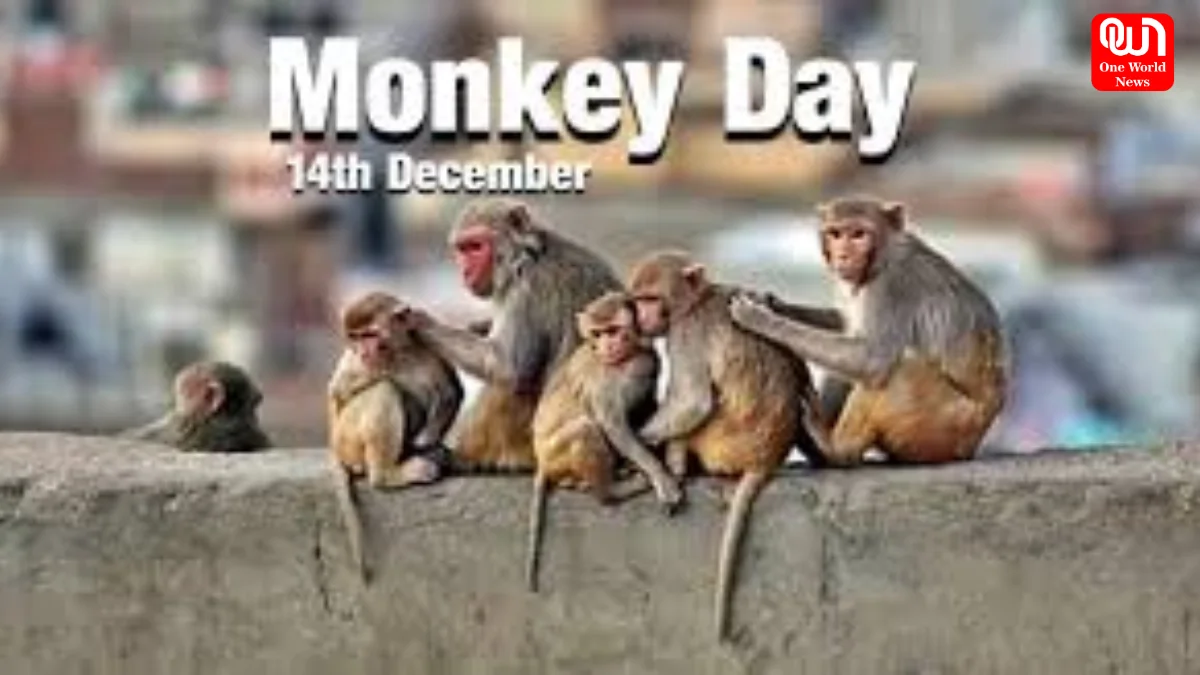Monkey Day 2025: Celebrating Our Playful Primates and Promoting Wildlife Awareness
Celebrate Monkey Day 2025 by learning about primate conservation, their importance to ecosystems, and efforts to protect endangered monkey species worldwide.
Monkey Day 2025: Celebrating Monkeys, Spreading Awareness on Primate Conservation, and Protecting Endangered Species Across the Globe
Monkey Day is celebrated every year on December 14 to honor monkeys and all primates, including apes, lemurs, and tarsiers. This fun yet meaningful day highlights the importance of primate conservation, their ecological significance, and the urgent need to protect their habitats. Beyond a light-hearted celebration of these intelligent and playful creatures, Monkey Day serves as a reminder of the challenges monkeys face due to deforestation, hunting, and illegal wildlife trade.
Origins and Meaning of Monkey Day
The History Behind Monkey Day
Monkey Day began as a humorous idea by art students Casey Sorrow and Eric Millikin in 2000. What started as a small campus joke quickly grew into an international event that celebrates primates and raises awareness about animal rights and conservation. Over time, Monkey Day became a global movement supported by wildlife organizations and animal lovers worldwide.
Purpose and Global Recognition
The main purpose of Monkey Day is to educate people about primate species, their habitats, and the threats endangering them. It encourages compassion for animals and promotes ethical treatment of wildlife. Today, Monkey Day is recognized across the world by zoos, conservation groups, schools, and environmental organizations aiming to protect endangered primate species.
Types of Monkeys and Their Diversity
Old World Monkeys
Old World monkeys are native to Africa and Asia. Species like baboons, macaques, and colobus monkeys are known for their complex social behaviors and intelligence. On Monkey Day, conservationists often highlight these species to spread awareness about their vanishing habitats.
New World Monkeys
Found mainly in Central and South America, New World monkeys such as capuchins, spider monkeys, and howler monkeys are known for their agility and prehensile tails. Monkey Day celebrations include educational programs about their role in rainforest ecosystems.
Endangered Monkey Species
Monkey Day also emphasizes protecting endangered species like the golden snub-nosed monkey, lion-tailed macaque, and proboscis monkey. Habitat loss, hunting, and climate change continue to threaten their survival, making conservation efforts more important than ever.
How Monkey Day is Celebrated Around the World
Educational Events and Workshops
Schools, universities, and wildlife organizations celebrate Monkey Day through workshops, exhibitions, and lectures. These programs teach participants about monkey species, primate behavior, and how to support global conservation initiatives.
Read more: Bharti Singh’s Rs 20 Lakh Luxury Watch Surprise From Harsh Limbachiyaa Wins Hearts Online
Social Media and Awareness Campaigns
Social media plays a vital role in spreading the message of Monkey Day. Wildlife enthusiasts, photographers, and conservationists share fascinating facts, photos, and videos of monkeys using hashtags like MonkeyDay. These campaigns help raise awareness among millions of people globally.
Fundraising and Conservation Efforts
Monkey Day is also a major fundraising occasion. Donations collected during events are directed toward wildlife sanctuaries, rehabilitation centers, and conservation projects that focus on rescuing and protecting primates. Many organizations use Monkey Day to launch campaigns for adopting endangered monkeys symbolically.
The Importance of Monkeys in Ecosystems
Seed Dispersal and Forest Regeneration
Monkeys play a vital role in forest ecosystems by dispersing seeds from the fruits they eat. This natural process helps forests regenerate and maintain ecological balance. Celebrating Monkey Day draws attention to how protecting monkeys also means protecting forests and biodiversity.
Scientific Research and Human Connection
Monkeys have long been studied to understand human behavior and evolution. They share around 93% of their DNA with humans, making them key to biological and behavioral research. Monkey Day reminds us of the deep connection humans share with primates and the responsibility to protect them.
Cultural Significance of Monkeys
In many cultures, monkeys are symbols of intelligence, playfulness, and spirituality. From Hanuman in Indian mythology to the Monkey King in Chinese folklore, these creatures hold cultural importance. Monkey Day celebrates their significance not only in nature but also in human stories and traditions.
Threats Facing Monkeys Today
Habitat Destruction and Deforestation
Deforestation caused by agriculture, logging, and urbanization continues to destroy monkey habitats. On Monkey Day, conservationists emphasize the urgent need to restore forests and protect wildlife corridors that allow monkeys to survive and thrive.
Illegal Wildlife Trade
Many monkeys are captured illegally and sold as pets or used in entertainment. Monkey Day aims to raise awareness about this cruel trade and advocate for stronger wildlife protection laws.
Climate Change and Human Conflict
Changing climates affect food availability and natural habitats for monkeys. Human-wildlife conflict also increases as monkeys move closer to human settlements in search of food. Educating people on peaceful coexistence forms a key part of Monkey Day’s global campaigns.
How You Can Celebrate Monkey Day
Support Primate Conservation
Individuals can contribute by donating to or volunteering with organizations working on monkey and primate conservation. These contributions help protect endangered species and fund essential research.
Spread Awareness
Use your voice on social media or in your community to educate others about Monkey Day, primate conservation, and wildlife protection. Awareness is the first step toward meaningful change.
Reads more: Kim Kardashian Channels Halle Berry–Inspired Bond Look at Kris Jenner’s Glamorous 70th Birthday Bash
Choose Sustainable Products
Support eco-friendly brands and avoid products that harm rainforests or exploit animals. Every sustainable choice helps protect the natural habitats monkeys call home.
Conclusion
Monkey Day is more than a celebration—it is a call to action to protect one of the world’s most intelligent and fascinating animal groups. By learning, spreading awareness, and supporting conservation efforts, individuals can help ensure a safer future for monkeys and other primates. This Monkey Day, let’s celebrate not just the joy and playfulness these creatures bring to our world, but also commit to preserving their place in it for generations to come.
We’re now on WhatsApp. Click to join.
Like this post?
Register at One World News to never miss out on videos, celeb interviews, and best reads.








